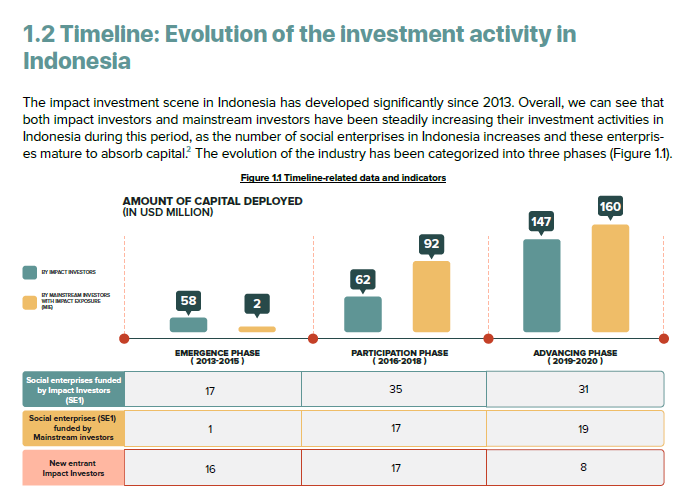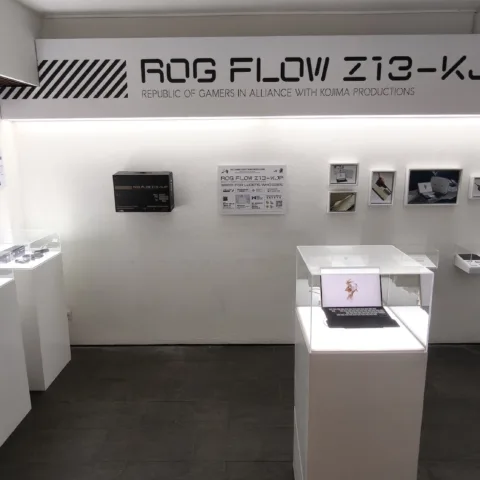How many startups and investors in Indonesia are using an environmental, social, and governance (ESG) approach or better known as impact investment in running their business? The answer is indeed limited. There are many factors to cause this. However, the digital economic entities are recently paying attention to this aspect.
In fact, Indonesia is not as mature as developed countries with regulations that “force” more players to make impactful investments. Apart from the current digital ecosystem which is yet to mature, there are a number of factors that hold the rise of impactful investment.
Piotr Jakubowski founded nafas with a focus on raising public awareness of the importance of clean air. Nafas allows an individual or corporation to participate as a sponsor in providing air quality sensors.
What becomes a challenge, says Piotr, is that often environmental impact initiatives such as the one he built through nafas are associated with company’s charity or CSR program. It is yet to be the main objective of an entity.
“The future of this category is clear. Science has confirmed the urgency of a number of environmental issues that can result in the growth of a for-profit business model that will focus on avoiding harm to our planet,” Piotr explained.
Crowde also nurtured the importance of green business. Head of Impact Investment, Afifa Urfani said that the urgency of holding the value of sustainability is not only for the purposes of company branding which is temporary but also for long-term interests.
Afifa takes an example of how Crowde, which focuses on credit in the agricultural sector, also implements reasonable restrictions on the use of chemicals, analyzes the impact of climate change on agriculture, mitigates risks related to climate change, such as the impact of prolonged drought on capital, and the formation of green scoring to assess the capital of a sustainable plan.
“For example, we invest a certain amount of money for a conventional business. Indeed, the income will be large and quite instant, but investing in a sustainable business looks heavy in the future, it can get low maintenance costs afterward,” Afifa said.
From an investor’s point of view, belief in the importance of impact investing can determine the sustainability of a company both resource and financially. This is held what ANGIN believes in.
ANGIN’s Impact Investment Lead, Benedikta Atika, noticed that impact investment growth in Indonesia maybe around 5-10 years behind other countries with more mature markets, however, there’s still some space for impact investment to grow in Indonesia.
In the early stages of private investment, Atika sees that many digital economy players in the country are starting to look at the environmental impact on the business they are in. The growth of the sustainable agricultural sector, waste management, and circular economy represent a positive movement of impactful investment.
“Apart from that, we also observed that several VCs who previously did not pay special attention to environmental impacts are now starting to have exposure, either having a special team related to impact investment or ESG (Environment, Social, and Governance) investment. They even launching a new fund for this approach,” Atika added.

Overall awareness
Even though it is called impact investment, the awareness of its importance must start from the business players. Crowde and nafas represent this by implementing sustainability values into its business model.
Atika said, aligning perceptions of investment opportunities with the business entity’s mission of sustainability is a challenge. Based on the Investing in Impact in Indonesia 2020 report, there is indeed a gap in the perceptions of the two parties. One is very focused on how big the impact of the solution they can provide, the other prioritizes the scalability of solutions that can reach a wider market in the hope of bringing greater financial benefits.
Atika believes, as long as the business model and strategy to be implemented by startups are sustainable, investors’ trust will follow.
“In fact, commitment to the environment must come from the startup and be embedded in its business model, not as a “mandate” from investors. This commitment will then be reflected in the business strategy and implementation,” Atika said.
Crowde has applied that. They have won the trust of a number of investors. Trusts earned because their entire team has equal awareness of the importance of the impact of their business on the agricultural environment
Crowde is one of the few startups that has compiled an environmental impact report on the business they run. The distribution of knowledge and awareness is not only held by company officials, but also by all employees.
“For example, the approval of a draft budget for farmers’ costs for capital by using certain chemicals that have passed the dose will not reach the CEO’s ears. It takes awareness not only from agents in the field but also from supervisors at HQ,” Afifa added.
Pandemic accelerates process
The market’s flavor can determine investment appetite. Shifts in community behavior will affect business people in sustainable issues. We can take an example of the increasing public enthusiasm for clean energy products which is finally captured by new energy startups. However, it usually takes a long time to shift human behavior into a new habit.
Pandemic accelerates this process. Piotr said public awareness of clean air began to increase rapidly since the Covid-19 outbreak took place. A study from Harvard University showed there was a higher death rate from Covid-19 in areas with more concentrated PM2.5 pollution.
Afifa also sees the same thing in the agricultural sector. When the pandemic hits the global economy, investment in the food sector comes into the spotlight. Increasing productivity has always been the main focus of the food sector, almost without intersect on the sustainable aspect. In fact, Afifa mentioned, there are quite a lot of incentives from the government and the private sector to encourage investment in startups that hold sustainable issues as stated in the SDGs.
“Before the pandemic, investment in the agricultural sector was considered a ‘futuristic’ concept for future generations – which is clearly a misconception. However, with a huge hit during the pandemic, finally, investment in the food sector has become the main focus for economic growth, not just inclusively but massively,” Afifa said.
Growing awareness in the digital economy ecosystem also requires a long-term approach. Atika noticed that people often only rely on financial reports as a reference for operating expenses. Whereas health, welfare, and access can also be counted as non-financial burdens.
These indicators should be used to measure whether their business can contribute better to their environment. In addition, pursuing sustainability values, according to him, can still go hand in hand with the financial targets of a business entity.
“Again, reflecting on the mission and vision of the organization about what approach is the most feasible to do, both in terms of solutions, value chains, and business processes,” Atika said.
–
Original article is in Indonesian, translated by Kristin Siagian












